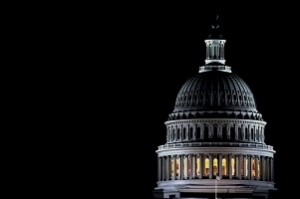As investors wait for the U.S. Senate to consider the Financial CHOICE Act, one of its most damaging corporate governance provisions has found its way to a house spending bill.
 The 2018 Financial Services and General Government Appropriations bill sets funding for the U.S. Treasury, Securities and Exchange Commission and other agencies — and would prohibit the SEC from carrying through on requiring the use of a single, universal ballot for contested elections. The House Appropriations Committee approved the bill in full committee last week, setting the stage for floor consideration. If enacted, investors would be forced to pursue universal ballots on a company-by-company basis through the shareholder proposal process — itself set to be nearly destroyed by the CHOICE Act.
The 2018 Financial Services and General Government Appropriations bill sets funding for the U.S. Treasury, Securities and Exchange Commission and other agencies — and would prohibit the SEC from carrying through on requiring the use of a single, universal ballot for contested elections. The House Appropriations Committee approved the bill in full committee last week, setting the stage for floor consideration. If enacted, investors would be forced to pursue universal ballots on a company-by-company basis through the shareholder proposal process — itself set to be nearly destroyed by the CHOICE Act.
It’s not unusual for sections of pending legislation to show up in another bill; however, investors and other market stakeholders should be concerned by the inclusion of the universal ballot prohibition. The current system limits shareholder rights, by forcing investors voting by proxy to choose between the management and dissident ballots, and by forcing dissidents to produce and distribute their own ballot. Universal ballots would provide all investors with the flexibility to vote for their choice of management and/or dissident nominees, and would potentially lower the cost of proposing a nominee.
The bill’s language is a direct push-back against investors — and the SEC, which last year proposed amending proxy rules to require universal ballots on contested elections. SEC Chair Mary Jo White stated that “The proposed changes would allow shareholders to vote by proxy in a manner that more closely replicates how they can vote in person at a shareholder meeting. … This change would allow shareholders through the proxy process to more fully exercise their vote for the director nominees they prefer.”
Indeed, most institutional investors prefer universal ballots. Ken Bertsch, executive director of the Council of Institutional Investors, believes that “
Mr. Bertsch is not alone. In an SEC roundtable, Anne Simpson, Investment Director of Sustainable Investing at the California Public Employees Retirement System noted that universal ballots would help to “achieve simplicity” and “facilitate a higher degree of shareholder engagement and more candidates coming forward. … This is a situation where change needs to take place for good economic reasons.” Simpson also highlights the practical constraints on investors under the current system, which requires in-person meeting attendance to avoid choosing between management and dissident ballots. “All we’re talking about is allowing the proxy voter to have the same ability that that voter would have if they were to attend (the annual meeting) in person.”
This isn’t the first time that the House has attempted to circumvent the SEC; last year, the House included the same restrictions in its 2017 spending bill. That didn’t fly with the Obama Administration; however, with a new administration at 1600 Pennsylvania Avenue, investors can’t count on a veto this time around.
Nor is the house appropriations bill the only news from DC that should have investors paying attention: On July 18, the House Energy & Commerce Capital Markets Subcommittee is holding a hearing on “The Cost of Being a Public Company in Light of Sarbanes-Oxley and the Federalization of Corporate Governance.” The intent is to provide the subcommittee with relevant background for considering “legislative proposals to promote capital formation and ease unnecessary regulatory burdens.”
While the hearing itself is limited to information-gathering, it could set the tone for future legislation. And with the CHOICE Act already set to gut Dodd-Frank, universal ballot prohibition popping up in funding bills, and the subcommittee set to hear ideas about rethinking Sarbanes-Oxley – one of the foundations of U.S. corporate governance – it appears to be open season on “unnecessary regulatory burdens” in Washington.
